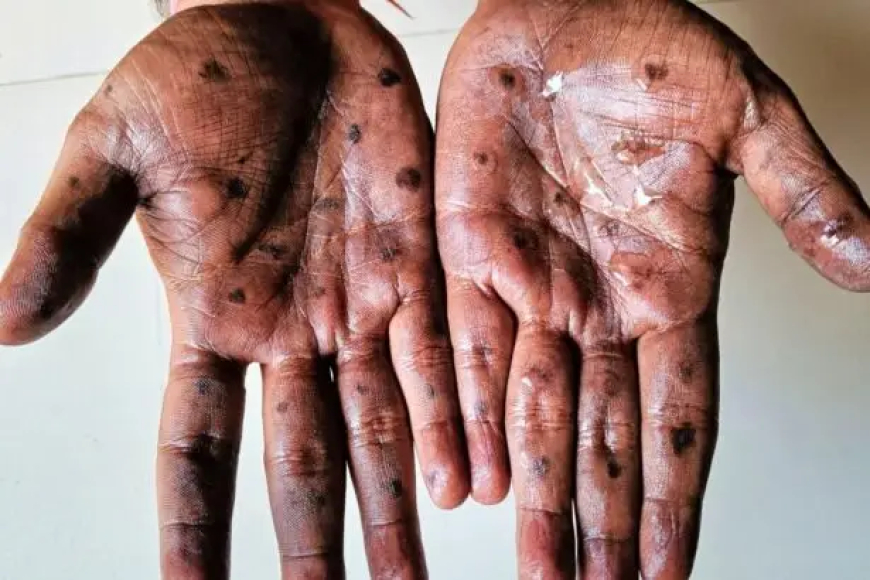Ghana Confirms 14 New Mpox Cases, Total Rises to 133

Ghana Confirms 14 New Mpox Cases, Total Rises to 133
Accra, Ghana – The Ghana Health Service (GHS) has confirmed 14 new cases of Mpox (formerly known as Monkeypox), raising the country’s total number of confirmed infections to 133.
The latest cases were detected through Ghana’s national disease surveillance system, which continues to monitor Mpox transmissions closely across various regions. While no hospitalisations or fatalities have been recorded in the current outbreak, health authorities warn that the increase in infections is a cause for concern and should not be taken lightly.
Speaking on the development, officials at the GHS reiterated the importance of early detection, public education, and community-level vigilance in containing the spread of the disease.
“We urge the public to report any suspicious symptoms such as fever, swollen lymph nodes, and skin rashes. Timely medical intervention is crucial in preventing further transmission,” a GHS statement said.
Public Advisory
The Ghana Health Service has intensified community sensitisation, particularly in high-risk areas, and is working with health facilities to ensure prompt diagnosis and isolation of suspected cases. Ghanaians are advised to:
-
Avoid close physical contact with individuals exhibiting Mpox symptoms;
-
Frequently wash hands with soap and water or use hand sanitiser;
-
Report to the nearest health facility if any symptoms develop;
-
Cooperate with contact tracers and health officials during investigations.
Background
Mpox is a viral zoonotic disease that spreads primarily through direct contact with infected individuals, bodily fluids, contaminated materials, or animals. While the disease is rarely fatal, it can cause severe symptoms and complications if not treated promptly.
Ghana recorded its first confirmed Mpox cases in 2022 and has since maintained an active surveillance and response framework led by the GHS, in collaboration with global health partners.
Looking Ahead
The Ghana Health Service assures the public that it remains committed to controlling the outbreak through continuous surveillance, early case management, and public health interventions. However, it emphasizes that the success of these measures depends heavily on public cooperation.
“Prevention is our first line of defence. Together, we can protect ourselves and our communities from further spread,” the GHS concluded.
What's Your Reaction?



















































































